 Petzlover
Petzlover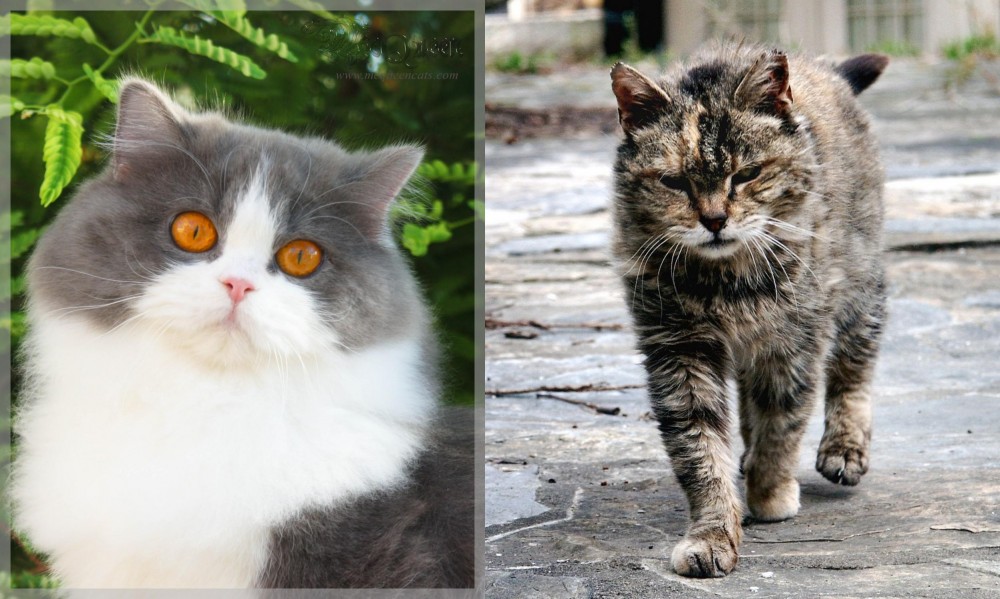 British Longhair is originated from United Kingdom but Farm Cat is originated from United States. Both British Longhair and Farm Cat are of same weight. British Longhair may live 3 years less than Farm Cat. Both British Longhair and Farm Cat has same litter size. Both British Longhair and Farm Cat requires Moderate Maintenance.
British Longhair is originated from United Kingdom but Farm Cat is originated from United States. Both British Longhair and Farm Cat are of same weight. British Longhair may live 3 years less than Farm Cat. Both British Longhair and Farm Cat has same litter size. Both British Longhair and Farm Cat requires Moderate Maintenance.
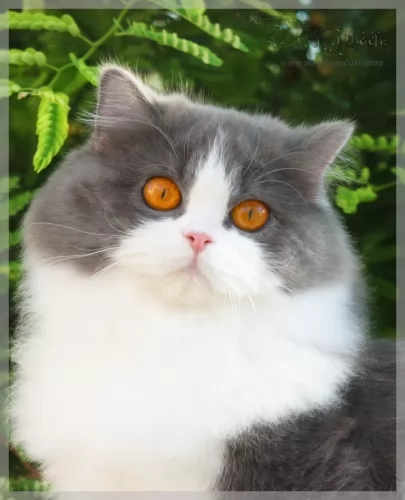 The British Longhair cat hails from Great Britain. The cat is a longer-haired variety of the British Shorthair.
The British Longhair cat hails from Great Britain. The cat is a longer-haired variety of the British Shorthair.
These British Shorthairs were interbred with imported long-haired varieties with the idea being to bring about a cat that was more compact and stout and with a rounder face. Today the British Longhair is an established longhair breed in its own right.
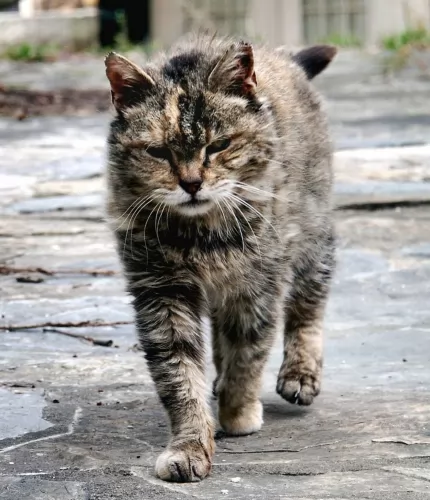 Known also as the Barn Cat, this domestic cat is of a mixed breed. The very name ‘farm cat’ is referring to a general kind of cat that lives in an almost wild state on farms and agricultural properties.
Known also as the Barn Cat, this domestic cat is of a mixed breed. The very name ‘farm cat’ is referring to a general kind of cat that lives in an almost wild state on farms and agricultural properties.
Possibly, their role in keeping rodents at bay was how they came about – domesticated to keep rodents away from grain crops.
When you do research you find that there is archeological evidence to suggests that these farm cats have been around since about 7500 BC. Most barn cats fall under the domestic shorthair or domestic longhair categories.
These cats live in a variety of conditions and some of them get their food solely from the rodents they catch. Others are tame with access to supplemental cat food as well as veterinary care.
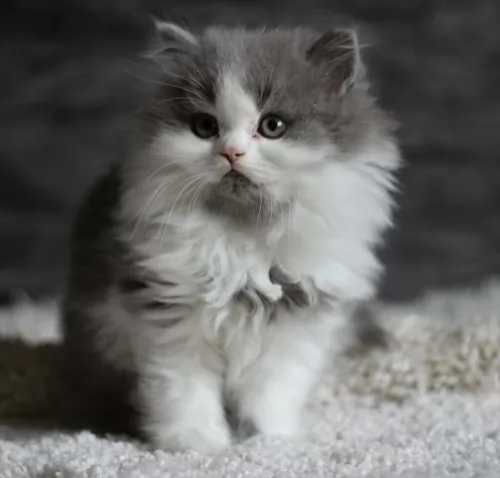 The beautiful British Longhair cat is a medium-sized feline, leaning towards being a large cat with semi-long hair.
The beautiful British Longhair cat is a medium-sized feline, leaning towards being a large cat with semi-long hair.
The cat, whether males or females can weigh between 4 and 8kg. It is robust and muscular with round paws and legs of medium length. The ears are smallish and round at the tips.
The color of the eyes can be different - browns, greens, blue, and grey. The colors of the coat can be blue, white, black, grey, calico, tabby, bi-color and tortoiseshell. The coat can be a solid color or it can be in different patterns. The fur is always medium length and silky with an undercoat.
The British Longhair has much the same personality as the British Shorthair – being calm, amicable cats who appreciate their human owners.
They’re adaptable cats too and are willing to get along with any other pets in the home as well. They’re playful and affectionate with their owners but don’t particularly like being held for too long.
Even though this is a docile cate, it is intelligent and will require mental stimulation. You’ll need to invest in a few ‘intelligent’ type of toys to keep your cat physically and mentally active. Take a look at the kinds of games where your cat will be required to ‘hunt’ for his food.
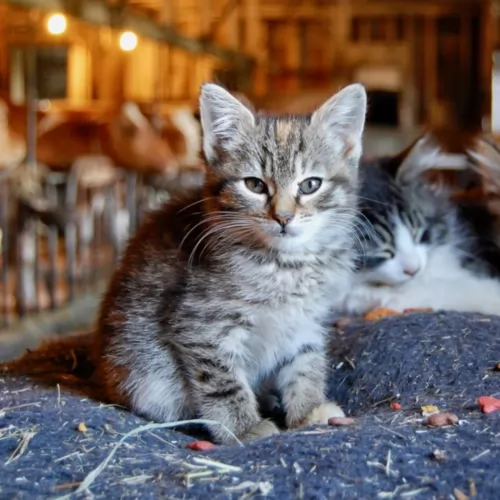 Farms cats are also members of domestic cats but it’s just that they are usually not socialized and they run away from people.
Farms cats are also members of domestic cats but it’s just that they are usually not socialized and they run away from people.
Farm cats have different histories and there is really no one-size-fits-all description of them.
They can weigh anything from 2 to 8kg. They can live to be anything between 10 and 20 years of age. Some of them are large, some small, some are solid colored while others are bi-colored and patterned. Their coats differ too and you can find short- and long-haired varieties among your farm cats
Their eyes and ears will also be in any shades and sizes and these cats are usually not spayed or neutered and can produce kittens that nobody is sure how they’ll turn out.
If you were to stumble across a farm cat born of unknown parents, there is no knowing what the small feline will behave like. Socialization and lifestyle play a big role in determining how a kitten will turn out but farm cats left to their own devices could be quiet, aggressive, loving, naughty, reticent, reserved, playful, lazy, shy or nervous.
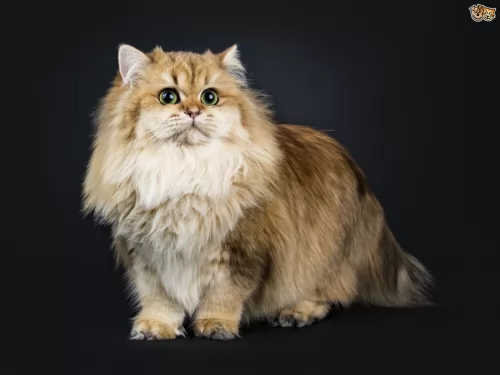 The British Longhair makes an awesome pet and can live happily with children, other dogs, and cats and all of his human family.
The British Longhair makes an awesome pet and can live happily with children, other dogs, and cats and all of his human family.
He isn’t a cat that wants to be picked up too often – he is independent but is willing and loving towards his humans.
For the friendship he offers, you’ll want to reward him for the joy he brings by providing well for him.
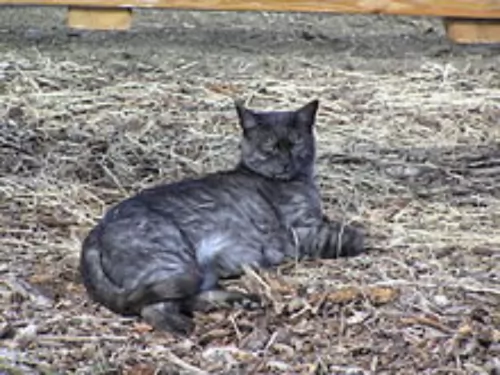 Farm cats are such wonderful animals – they just need a good chance in life like other domestic cats.
Farm cats are such wonderful animals – they just need a good chance in life like other domestic cats.
Many of them have had a hard life and it can be marvelous to open your home and heart to one or two of them and see the pleasure they bring.
They’re full of character and if you provide them with good food and a warm bed and promise to love them, you’ll no doubt be starting a solid and meaningful friendship that can enhance your life.
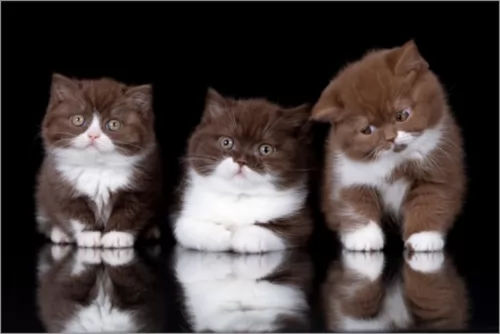 These beautiful cats can be prone to obesity if kept as an indoor cat only and a cat that doesn't get enough exercise.
These beautiful cats can be prone to obesity if kept as an indoor cat only and a cat that doesn't get enough exercise.
Obesity, an accumulation of excess body weight, is a preventable disease. It is necessary to prevent this obesity as it can reduce your pet’s life expectancy. Fat tissue is active, secreting inflammatory hormones and creating oxidative stress on the body’s tissue, and this is precisely what contributes to so many diseases.
The British Longhair cat can also be prone to renal polycystosis. This disease is where many pockets of fluid or cysts form in the kidney and if they grow large over time they can actually interfere with kidney function and this can bring on kidney failure.
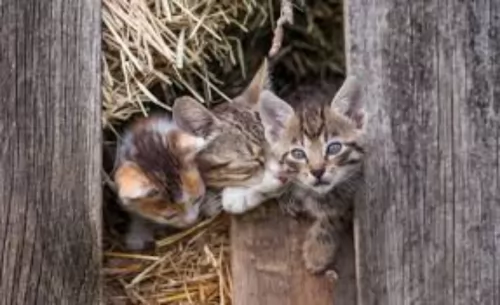 Farm cats left to fend for themselves can suffer from a host of illnesses. Eye infections are one. The cause of these eye infections is usually a virus, of which herpes, chlamydia, and Calicivirus are the most common.
Farm cats left to fend for themselves can suffer from a host of illnesses. Eye infections are one. The cause of these eye infections is usually a virus, of which herpes, chlamydia, and Calicivirus are the most common.
Your vet will certainly prescribe you some antibiotics for your kitten to help against secondary infections.
Check your farm kitten over as he is likely to have a nose full of snot as well and may even be sneezing. Take the kitten to the vet who can give him a good once-over and put him on the road to recovery.
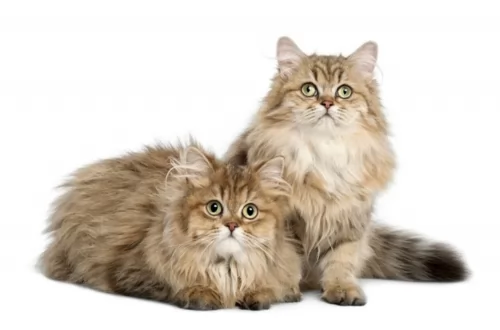 Because of the long hair, the British Longhair is going to require brushing as the coat can easily become matted, particularly as the coat thickens in preparation for winter.
Because of the long hair, the British Longhair is going to require brushing as the coat can easily become matted, particularly as the coat thickens in preparation for winter.
You’ll need to brush the hair once a week, but perhaps more in peak shedding times. A gentle but firm brushing keeps the cat’s fur and skin in good condition.
Have your pet spayed and neutered to avoid unwanted kittens.
Take your pet to the vet as soon as he is unwell. He is part of your family now and must be treated as such.
Provide your pet with human companionship especially if you buy one of the more social cats.
If your cat is an indoor pet, provide him with a litter box ad be prepared to clean it every day.
Provide a clean, dry, comfortable bed in a quiet area.
Provide your cat with stimulating toys.
Vaccinate your cat against the major feline diseases. Also, have your cat dewormed.
In terms of nutritional requirements, make sure that your British Longhair gets the very best cat food there is, whether you provide him with homemade food or you give him some of the excellent commercially manufactured cat foods there are.
There are wet- and dry foods and it's for your furry friend to decide which one he prefers.
Learn to read labels and make sure your cat is getting foods high in protein, after all, your cat is a carnivore.
Be sure that the food has lots of vitamins and minerals for his health. A cat also needs a constant supply of fresh, cool water.
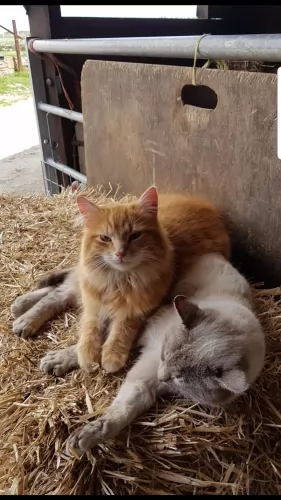 Barn cats or farm cats are not likely to have been neutered or spayed and they are just adding to the overpopulation of farm cats that can become feral cats.
Barn cats or farm cats are not likely to have been neutered or spayed and they are just adding to the overpopulation of farm cats that can become feral cats.
The average fertile cat can produce three litters every year, and with as many as 6 kittens in a litter, you can imagine how a small colony of cats can get out of control.
Sometimes cat rescue programs do a steri-drive and spay and neuter cats like this to curb the numbers. Of course, spaying and neutering can prevent many diseases as well.
If you have farm cats that have been spayed or neutered, provide them with good food and water. You can put out wet, canned cat food or dry kibble – they’ll be so pleased as most times these cats don’t even know where their next meal will come from.
You see them drinking out of puddles of water. Unfortunately, these pools are often filled with contaminants and this can also make the cats sick.
Every cat just wants a soft, warm place to sleep, and if you can, provide some warm dry hay for these farm cats. Even a cardboard box can be a haven for a cat that has never known a bed.
If you have managed to catch a farm cat kitten and you want to offer it a home, make sure to start off with veterinary care and vaccines.